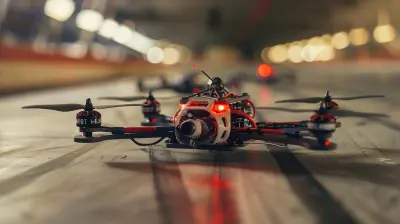How to Fly a Drone Safely in Crowded Areas
7 November 2025
Flying a drone is kind of like having a superpower. You get to see the world from above, capture jaw-dropping footage, and even feel a bit like you're flying yourself. But with great power comes great responsibility—especially when you're flying a drone in crowded areas. Whether you're capturing event footage, surveying a cityscape, or just out to impress your followers on social media, safety should always be front and center.
So let’s talk about how to fly a drone safely in crowded areas without ruining someone’s day—or your own drone. Ready to be the pilot everyone trusts? Let's dive in.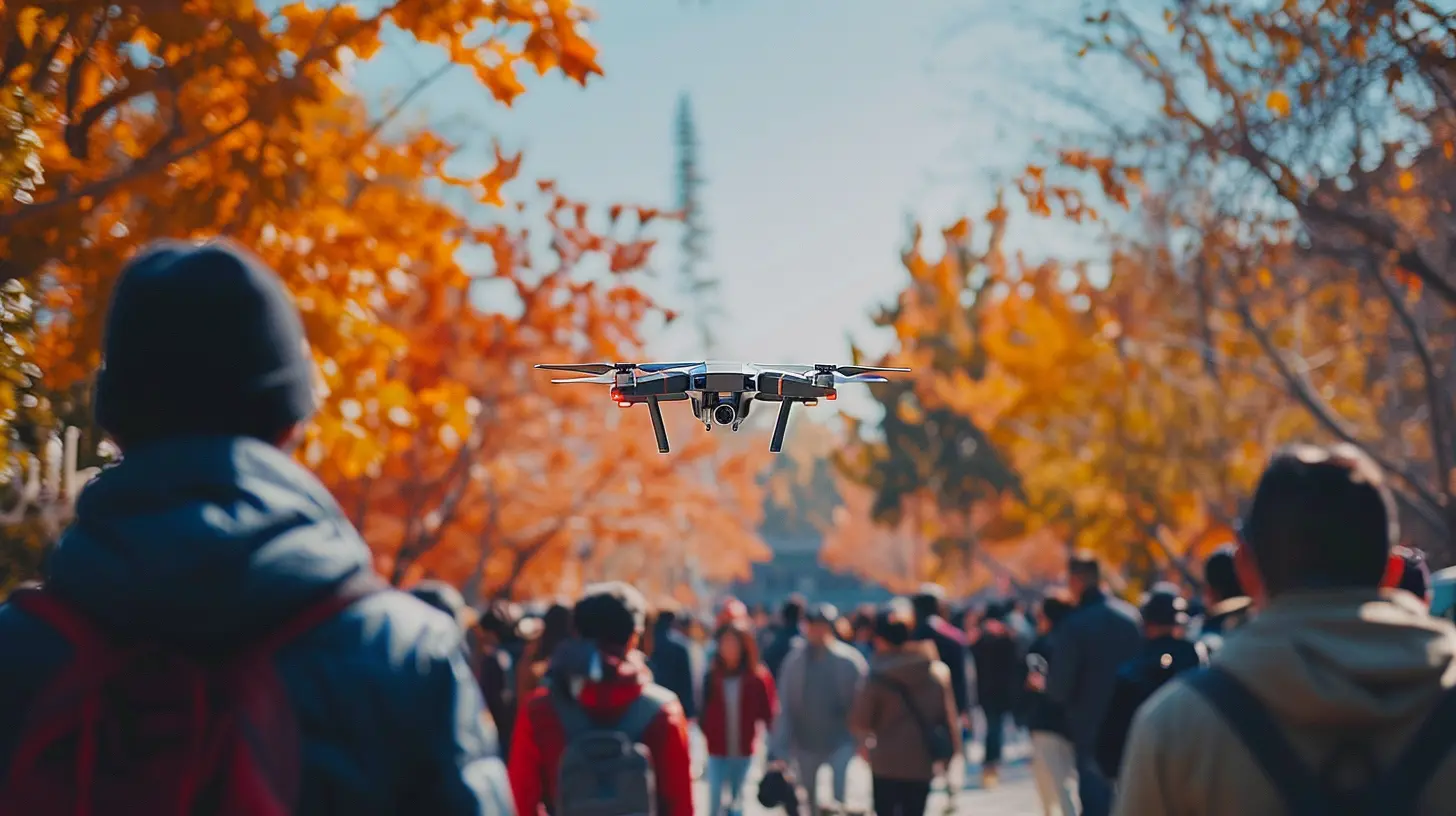
Why Drone Safety in Crowded Areas Is a Big Deal
Picture this: You’re flying over a street festival or a busy marketplace. Tons of people below, and your drone is buzzing overhead. One wrong move, a gust of wind, or a distracted moment—and things could go downhill, fast.When you're around crowds, there's zero room for error. A misstep could lead to injuries, property damage, or even legal issues. That’s why understanding the right techniques, precautions, and regulations is not just good practice—it’s critical.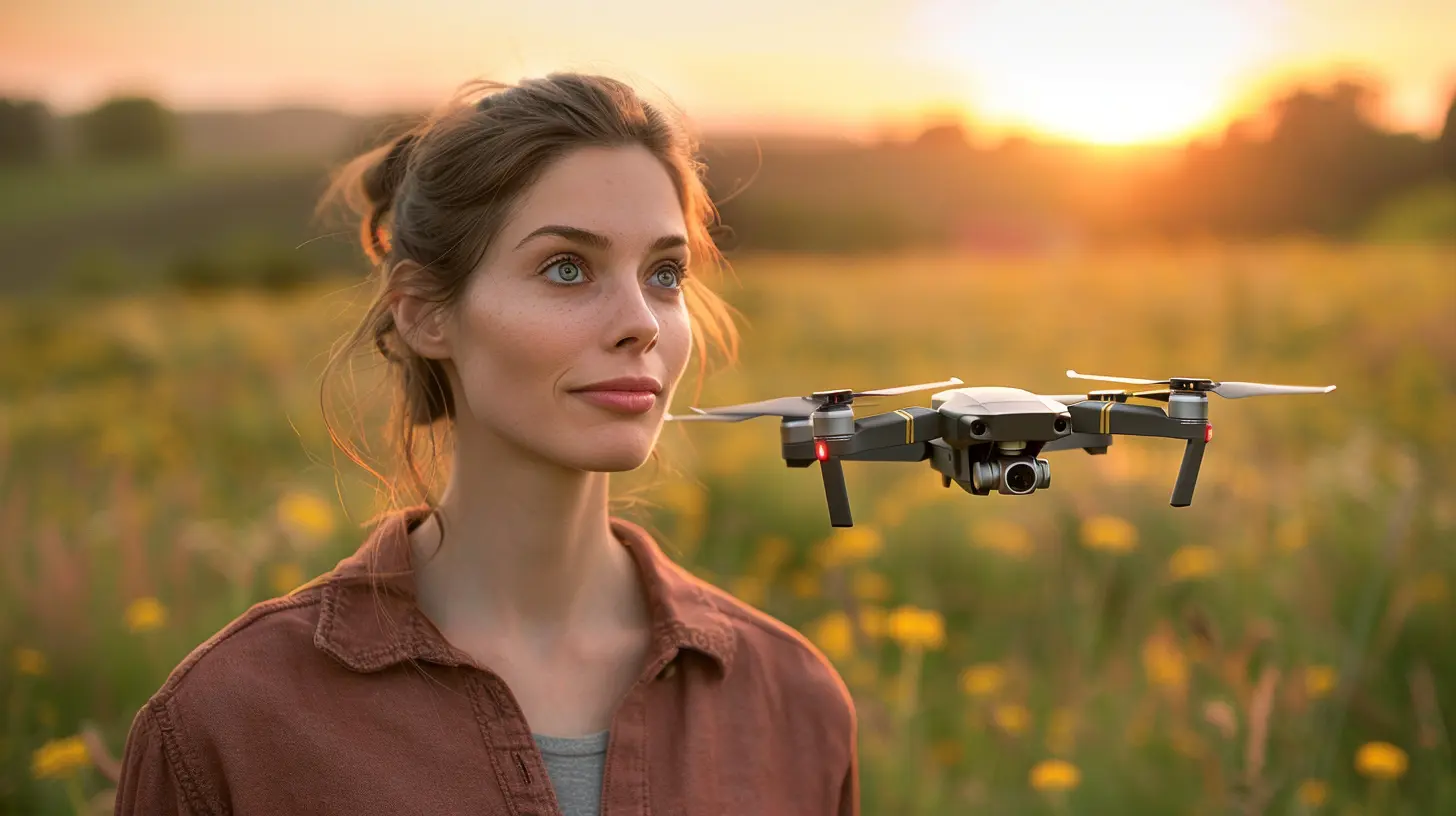
Know the Law Before You Launch
Before you even think about powering up your drone, make sure you're not breaking the rules. Each country—and often each city—has its own regulations for drone use, especially in populated areas.✅ Check Local Regulations
- In the U.S., the FAA (Federal Aviation Administration) has strict rules about flying over people.- In the UK, the CAA mandates you maintain a safe distance from crowded places.
- Australia? CASA wants to ensure you’re not within 30 meters of people.
Do your homework. Trust me, “I didn’t know” won’t get you out of a fine.
✅ Get Proper Certifications
In many jurisdictions, flying a drone for commercial purposes—like filming an event—requires certification. For example, in the U.S., you'll need a Part 107 Remote Pilot Certificate. It proves you know what you’re doing.✅ Register Your Drone
If your drone weighs more than a certain threshold (usually around 250g or 0.55 lbs), registration is a must. It’s simple, affordable, and ensures you're flying legally.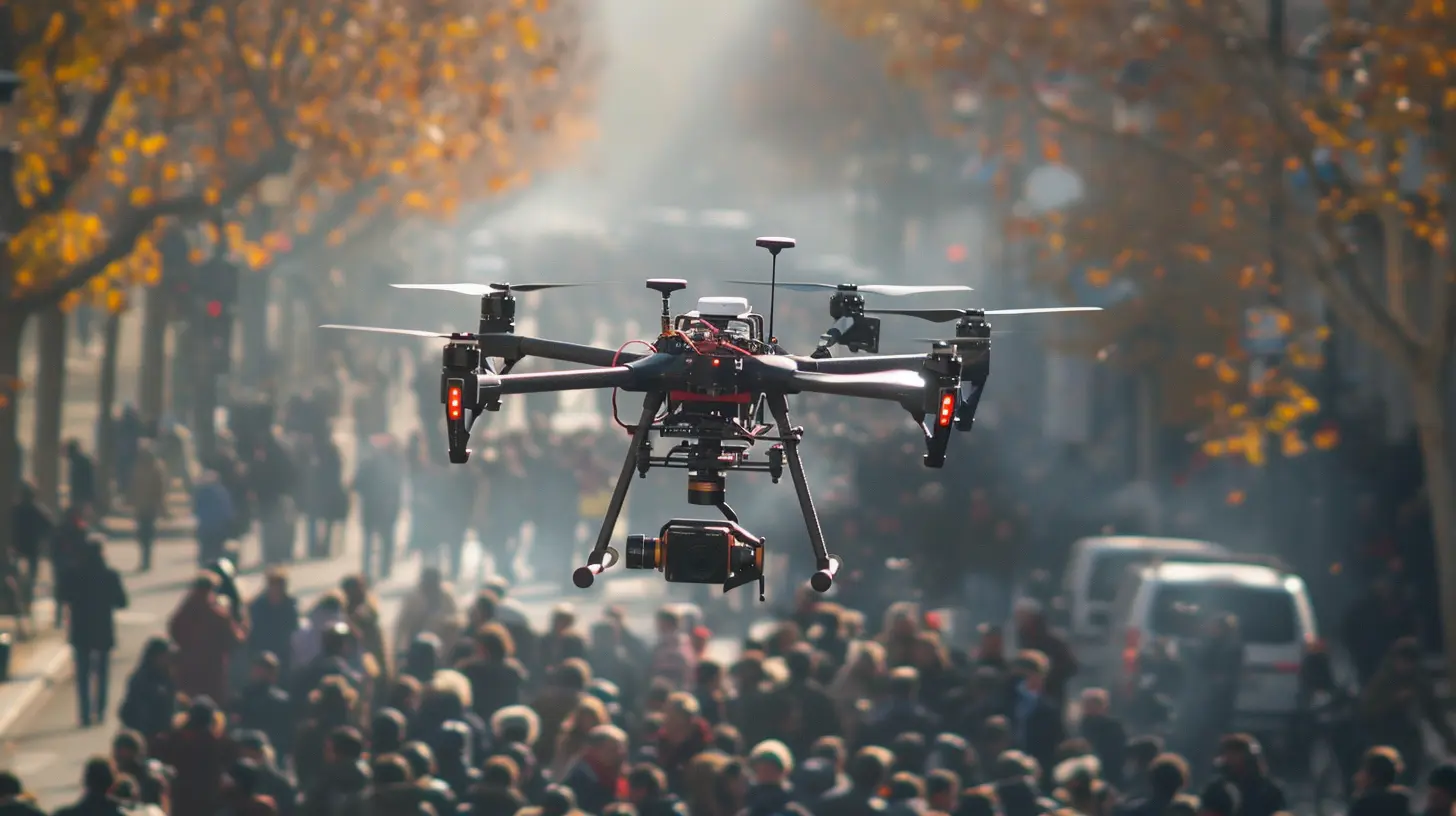
Choose the Right Drone for the Job
Not all drones are built the same. Flying a giant, heavy-duty drone with spinning death blades over a crowd? Big no-no. You want something that’s:- Lightweight
- Equipped with obstacle-avoidance sensors
- Stable in windy conditions
- Quiet and discreet
🚁 Consider Using Micro Drones
Micro drones are small, nimble, and less likely to cause damage if something goes wrong. They’re perfect for tight urban environments or indoor venues with lots of foot traffic.🚁 Invest in Safety Features
Some drones come packed with features that make flying in tricky spots way easier:- Geofencing to prevent you from entering restricted zones
- Return-to-home if you lose GPS or connection
- Automated flight modes for smoother footage and safer operation
Spend the extra money—it’s worth it for the peace of mind.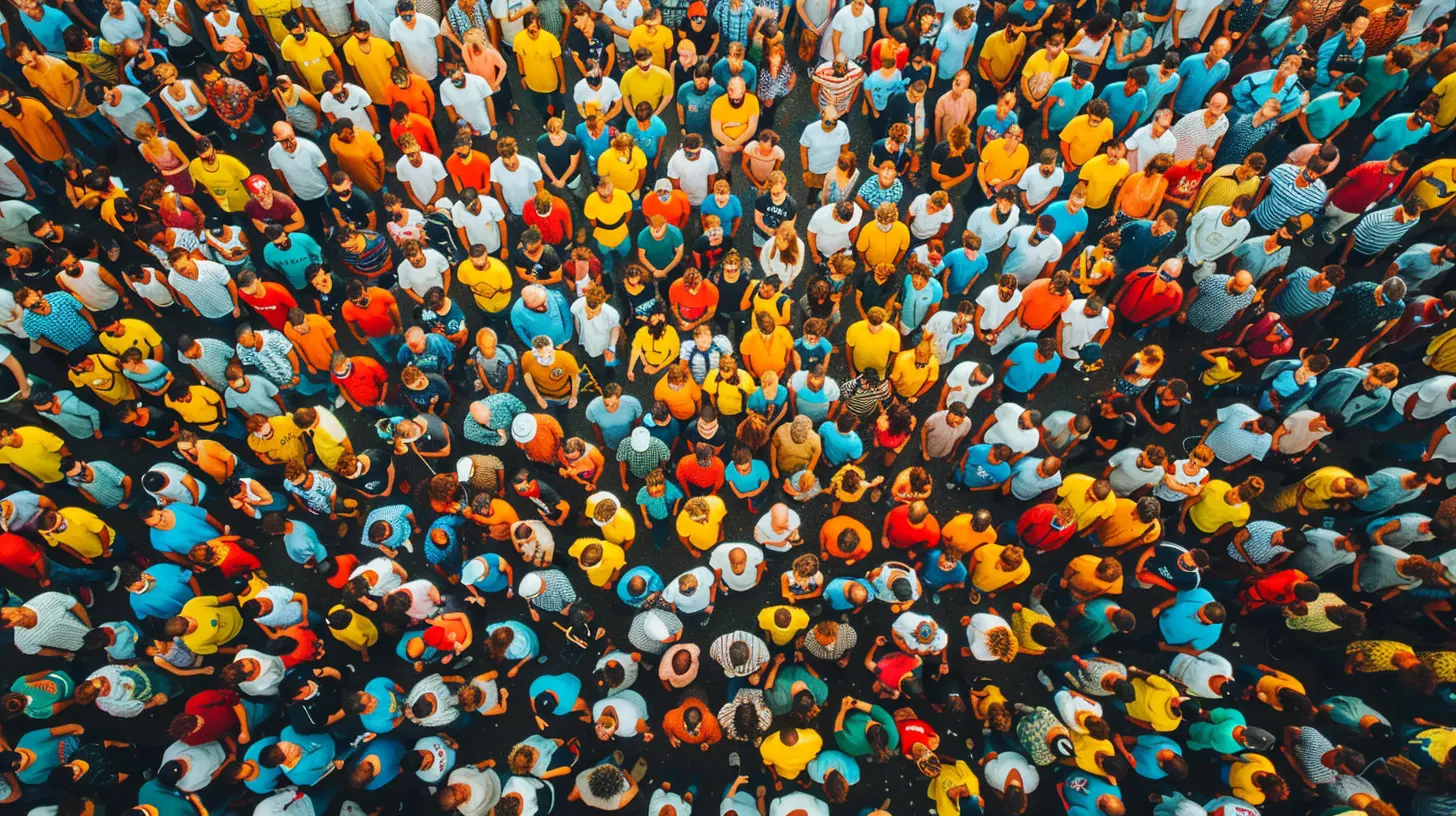
Scout the Area Before the Flight
Flying a drone in a crowded area without scoping it out first is like driving blindfolded. You need to know your environment.🧭 Use Satellite View Ahead of Time
Tools like Google Maps or drone planning apps (e.g., DJI Fly or DroneDeploy) can help you understand the layout before you even get there. Look for:- Open spaces to take off and land
- No-fly zones
- Possible obstacles like power lines, trees, or tall buildings
🧍Walk the Area on Foot
Once you’re physically there, take a stroll. Notice air currents, unexpected obstacles, and how people are moving around. It helps you plan flight paths and potential emergency landing zones.Communicate Clearly and Respect Privacy
Flying in a populated area brings up another concern—people’s comfort and privacy.📣 Let People Know You’ll Be Flying
If you’re flying in a semi-public space like a park or an event venue, notify organizers, security, or property managers in advance. Sometimes, people can panic when they see a drone hovering above them—and you don’t want to be that guy.📵 Avoid Hovering Directly Over People
Not only is it often illegal, but it’s also just plain rude. People don’t like the idea of a camera hovering above their heads. Fly nearby, not overhead.🛡️ Respect Privacy Laws
Film events, not individuals. Avoid zooming in on personal conversations or private property unless you have consent. In some places, invading someone’s privacy with a drone can land you in serious legal trouble.Use the Buddy System
Have you ever tried to do everything at once? Flying the drone, filming, watching people, avoiding trees? It’s a lot. That’s why having a spotter or assistant is a game-changer.👀 What a Spotter Does
- Keeps an eye on the drone’s surroundings- Helps you avoid people or obstacles
- Communicates with others around you if needed
Think of them as your co-pilot. You fly. They help keep everyone safe.
Fly During Optimal Conditions
Weather plays a huge role in how your drone behaves. Crowded areas don’t mix well with unpredictable flying.☀️ Stick to Good Weather
Avoid rain, strong winds, and low visibility. Even a $2,000 drone can get knocked off course by a surprise gust.🌇 Daylight is Your Best Friend
Low light makes it harder to see your drone, obstacles, or the people around. Stick to daylight hours unless you have night flying endorsements and proper lighting.Master Manual Controls Before Going Public
Crowded areas are not the place to practice your flying skills. You need to be confident and have full control over your drone before going airborne where people are milling around.🎮 Practice in Open Spaces
Use parks, empty fields, or even drone simulators to get comfortable with:- Launching and landing
- Quick direction changes
- Hovering in place
- Emergency stops
The better you are at handling your drone, the safer everyone will be.
Keep It Short and Sweet
Long flights in busy areas increase the chances that something can go wrong. Batteries die, people move into your flight path, your attention wanes.🕒 Plan Short Missions
- Know exactly what footage you need before takeoff- Keep each flight under 15-20 minutes
- Land and review footage before going up again
This helps minimize risks and keeps your gear—and people—safe.
Be Ready for Emergencies
Let’s be real—stuff happens. Birds attack, GPS cuts out, or someone throws a frisbee directly into your drone’s path. (Yes, that happens.)🧰 Have a Plan B
Know where you can safely land in an emergency. Memorize your drone’s return-to-home function, and keep your eyes on its battery levels.📞 Keep Emergency Contacts Handy
If you’re at an organized event, know who to call in case of an incident—event staff, security, or even local authorities.Review Your Footage Responsibly
Once you’ve landed, your job’s not quite done. Review your footage before posting or sharing it.👀 Check for Sensitive Content
Did you accidentally capture someone in a vulnerable situation? Is there a license plate or address that’s clearly visible? Edit responsibly to protect others' privacy.💻 Store Your Files Safely
Use cloud storage or a backup drive. Losing a drone is bad—losing hours of footage is even worse.Final Thoughts: You Can Fly Safe AND Get Awesome Shots
Flying a drone safely in crowded areas isn’t just about rules—it’s about respect. When you take the time to prepare and follow best practices, you're not only protecting others, you’re also elevating your work as a drone pilot.So next time you're gearing up to fly at a concert, festival, or busy tourist spot, remember: safety first, epic aerials second. That way, everyone wins.
Fly smart. Fly safe. And keep those rotors spinning!
all images in this post were generated using AI tools
Category:
DronesAuthor:

Adeline Taylor
Discussion
rate this article
1 comments
Bellamy Henderson
Thank you for this informative article! Your tips on flying drones safely in crowded areas are invaluable for both beginners and seasoned pilots. It's essential to prioritize safety and awareness, and this guide is a fantastic resource for responsible flying.
November 9, 2025 at 5:37 AM
